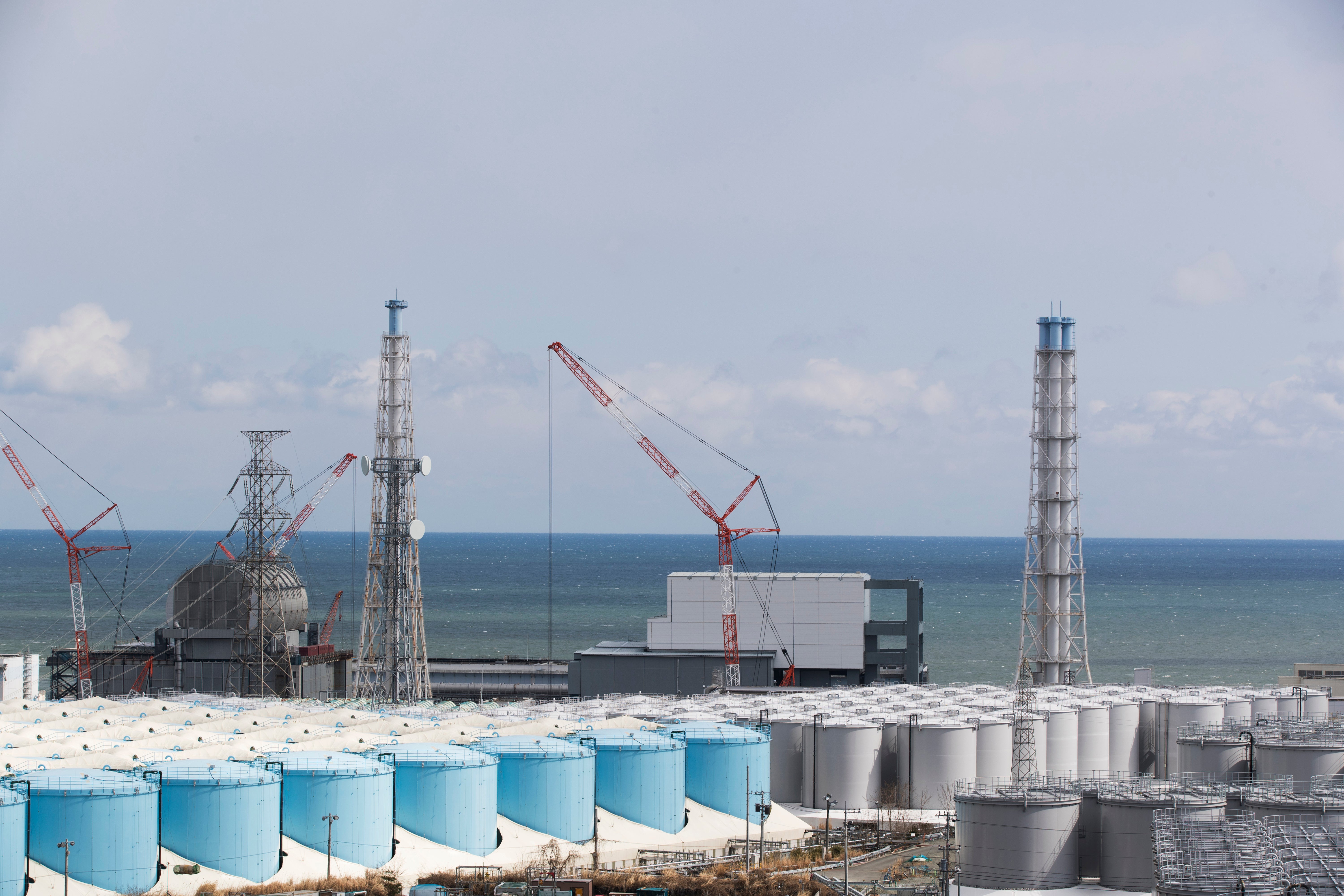Japan to announce Fukushima water release into sea soon
The Japanese government has decided to dispose of massive amounts of treated but still radioactive water stored in tanks at the wrecked Fukushima nuclear plant by releasing it into the Pacific Ocean, local media say, a conclusion widely expected but delayed for years amid protests and safety concerns

Your support helps us to tell the story
From reproductive rights to climate change to Big Tech, The Independent is on the ground when the story is developing. Whether it's investigating the financials of Elon Musk's pro-Trump PAC or producing our latest documentary, 'The A Word', which shines a light on the American women fighting for reproductive rights, we know how important it is to parse out the facts from the messaging.
At such a critical moment in US history, we need reporters on the ground. Your donation allows us to keep sending journalists to speak to both sides of the story.
The Independent is trusted by Americans across the entire political spectrum. And unlike many other quality news outlets, we choose not to lock Americans out of our reporting and analysis with paywalls. We believe quality journalism should be available to everyone, paid for by those who can afford it.
Your support makes all the difference.The Japanese government has decided to dispose of massive amounts of treated but still radioactive water stored in tanks at the wrecked Fukushima nuclear plant by releasing it into the Pacific Ocean local media reported Friday, a conclusion widely expected but delayed for years amid protests and safety concerns.
Prime Minister Yoshihide Suga told top fisheries association officials on Wednesday that his government believes the release into the sea is the most realistic option and that a final decision would be made “within days.”
A formal announcement is expected soon at a meeting of key ministers, Industry Ministry officials said Friday. They declined to confirm reports from Kyodo News and other media that the ministers will meet as early as Tuesday and have already reached a final decision.
A government panel, after seven years of discussion on how to dispose of the water without further harming Fukushima's image and the region's fisheries and other businesses, prepared a report two years ago saying a release into the sea is the most realistic method. The report mentioned evaporation as a less desirable option.
The release is expected to start in about two years after the utility, Tokyo Electric Power Co., sets up a facility approved by nuclear authorities. According to a preliminary estimate, a gradual release of the water is expected to finish before the plant cleanup ends.
A release of the water into the sea has faced fierce opposition from local fishermen and residents. Japan Fisheries Cooperatives Chairman Hiroshi Kishi said he rejects Suga's proposed release plan and demanded the government explain how it will address damage to the fishing industry.
The government has said it will do its utmost to support local fisheries and provide compensation for any damages.
In 2011, a powerful magnitude 9.0 earthquake and tsunami damaged the Fukushima plant’s cooling systems, causing three reactor cores to melt.
In the decade since, cooling water has constantly escaped from the damaged primary containment vessels into the basements of the reactor buildings. To make up for the loss, additional water has been pumped into the reactors to cool the melted fuel remaining inside them. Water is also pumped out and treated, part of which is recycled as cooling water, and the remainder stored in around 1,000 tanks at the plant.
TEPCO, the utility, is contending with about 1.24 million tons of radioactive water.
TEPCO and government officials say tritium, which is not harmful in small amounts, cannot be removed from the water, but all other radionuclides selected for treatment can be reduced to safe levels for release. But some scientists say the long-term impact on marine life from low-dose exposure from such large volumes of water is unknown.
The operator says the tanks’ 1.37 million-ton storage capacity will be full in 2022, and that tanks will need to be removed to make room for decommissioning facilities.
Japan has sought the International Atomic Energy Agency's involvement in safety reviews and monitoring to help increase transparency and public trust.